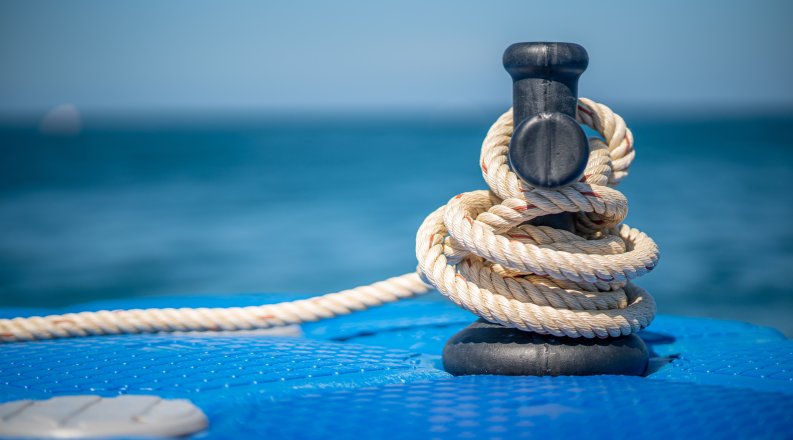Researchers at Old Dominion University’s Virginia Modeling, Analysis and Simulation Center (VMASC) are working with the Hampton Roads Maritime Industrial Base Ecosystem (MIBE) on two projects that are designed to enhance workforce development in the maritime industry within Virginia and beyond.
The first project would create a defense manufacturing strategy for the state of Virginia. This initiative grew out of a roundtable on defense workforce strategy with core support from MIBE in August 2022, said Mike Robinson, MIBE executive director and VMASC chief operations officer. The roundtable was hosted by Craig Crenshaw, Virginia secretary of veterans affairs, and G. Bryan Slater, the state’s secretary of labor.
Through data-driven presentations by industry, academic and government stakeholders, several issues emerged regarding the maritime sector’s lack of resilience. Roundtable participants were especially concerned about the large and growing gap in the number of skilled trades workers available, a widespread lack of understanding of maritime’s critical role in the economy, and cumbersome, ineffective contracting processes.
“One of the outcomes of that was that we really need to have a defense manufacturing strategy, inclusive of workforce but not only workforce,” Robinson said. “What we’ve heard is that there are a range of challenges and a range of underutilized resources. With a clear commonwealth strategy and detailed analysis of our strengths and weaknesses, opportunities and threats, Virginia can mobilize the underutilized resources needed and identify where investments should be made to address industrial-base challenges.”
“ODU has this huge effort that’s moving forward to try to help the region in this industry.” - Mike Robinson, MIBE executive director and VMASC chief operations officer
VMASC is taking on this project through MIBE, a team that also includes Rear Adm. (ret.) Mark Whitney, Robert-Allen Baker, Russell Czack and Jason Dudley.
Plans call for the project to be wrapped by Sept. 30 – the end of the federal fiscal year.
“For us, the benefit is to say that out of all the places the commonwealth could have gone, they came to ODU and MIBE. That’s of value to us,” Robinson said, noting that it could open the door to more projects.
The other initiative is a Maritime Skills Trade Alignment Project, which will align the skill levels, competencies and training standards used across all four of the nation’s public shipyards as well as private maintenance, repair and modernization organizations in southeastern Virginia. This work, with $640,000 of funding from the U.S. Department of Labor for the first year’s work, will begin this summer.
Basically, it will try to ensure that naval tradespersons such as welders, machinists and electricians receive standardized training across the shipyards. The Navy has been working to address this issue by creating trade skill designators, which would mean the shipyards have agreed on training programs for particular skills. But the issue hasn’t been completely resolved.
“Right now, those people can still be trained in different ways,” Robinson said.
That is costly and inefficient.
“Say at Norfolk Naval they’re doing a big job and it requires a skill set that we don’t have here, but maybe they have it at Puget Sound,” Robinson said. “So, we at Norfolk Naval could request what’s called a Tiger team – kind of like a traveling group of experts – to come here and work on it. But because there’s not really any standardization between how people are trained between the two shipyards, what we expect those people to do and how we expect them to go about it could be different than the way they normally do it.”
This causes delays in projects getting done.
“Sometimes it takes two or three weeks while the Tiger team is sitting here getting retrained in the different shipyard’s methodology,” Robinson said. “And all that time, you and I the taxpayer are paying per diem, travel and everything else for work that’s not being done. It’s inefficient, and it’s been recognized as inefficient for a long time.”
To help resolve this, work will focus on marine electricians in a pilot program. MIBE anticipates a successful program will garner support and funding from a “whole of government” coalition of state and federal resources and encourage participation from additional private shipyards.
“The private shipyards have good reason to be hesitant about doing this. They’ve been reluctant to do so because of fear that as we standardize this, it makes their employees more portable,” said Robinson, explaining that they fear their employees could be lured to bigger shipyards that offer larger salaries.
Robinson said the hope is that if “we grow the total number of skilled tradesmen and women to increase the size of the pool, portability won’t be as much of an issue. Or we can find a way to create a pool of experts whose talents are shared by multiple organizations as needed.”
The ultimate goal is to make a lasting impact on the maritime industry.
“ODU has this huge effort that’s moving forward to try to help the region in this industry,” Robinson said. “If we can make all these things come together, it’s the kind of thing that we could go home and everybody who’s been a part of it could say we helped change our region.”



